The Monster Still Among Us
Why Beowulf Speaks to the Modern Soul
Every generation believes its monsters are new. Yet when we read Beowulf, we realize they’ve only changed faces. The darkness that once haunted Heorot now hides in the modern heart. In greed disguised as ambition, in anger dressed as virtue, and in loneliness that feeds on itself. That’s why this poem refuses to fade. It isn’t just an ancient myth. It’s a mirror.
In its bones, Beowulf is about how power, faith, and mortality collide. It’s about the courage to fight what should never have existed and the humility to know you’ll lose in the end. But even that loss can be sacred if it’s faced rightly. That’s what makes Beowulf more than an old heroic tale.
The world that birthed Beowulf was one of ruin and rebuilding. Christianity had come, but the pagan memory still pulsed beneath it. The poet wrote for people learning to live between belief and doubt, between fate and faith. He fused both worlds into one truth: valor without virtue is hollow, and faith without action is cowardice.
Lesson 1 — The Wrath That Redeems
Beowulf’s rage isn’t sinful; it’s divine. The warrior’s fury when he grips Grendel in the mead hall reflects not madness but moral order. The Old English phrase “Godes yrre bær” — “he bore the wrath of God” — marks Beowulf not as a berserker but as an avenger acting under heaven’s sanction.
In a Christian world wary of wrath, this was radical. Anger was a sin that consumed souls. But Beowulf’s fury doesn’t rise from pride. It ignites only when he faces chaos, Grendel, the dragon, the mother of monsters. His anger burns clean because it defends order against corruption.
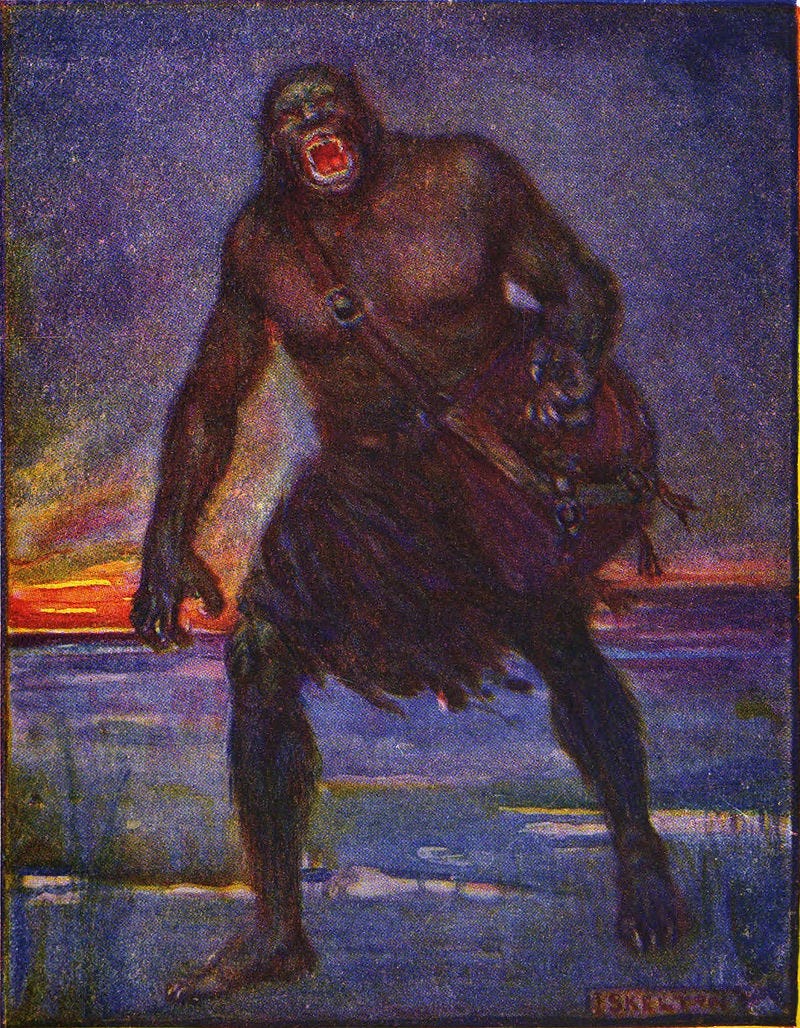
Grendel isn’t simply a beast. He is rage exiled from heaven, a shadow of the fallen angels who defied God. His hatred of joy, of music, of men, is the echo of Lucifer’s envy. When he storms Heorot, he brings the residue of rebellion into the human world.
Beowulf meets that rebellion with its mirror opposite: controlled power. His strength doesn’t spill over; it strikes with purpose. The fight between them is not man versus monster, but corrupted fury against sanctified wrath. In that hall, divine justice tests human rage.
That’s what gives the poem its strange holiness. The poem does not condemn Beowulf’s violence; it consecrates it. It’s a rare moment when the sword becomes an extension of conscience.
Yet this divine fire comes with danger. The same anger that redeems can also destroy. As Beowulf grows older, his victories turn inward. He believes he alone can save the world. When the dragon rises, he faces it alone, not because he must, but because pride whispers that no one else is worthy.
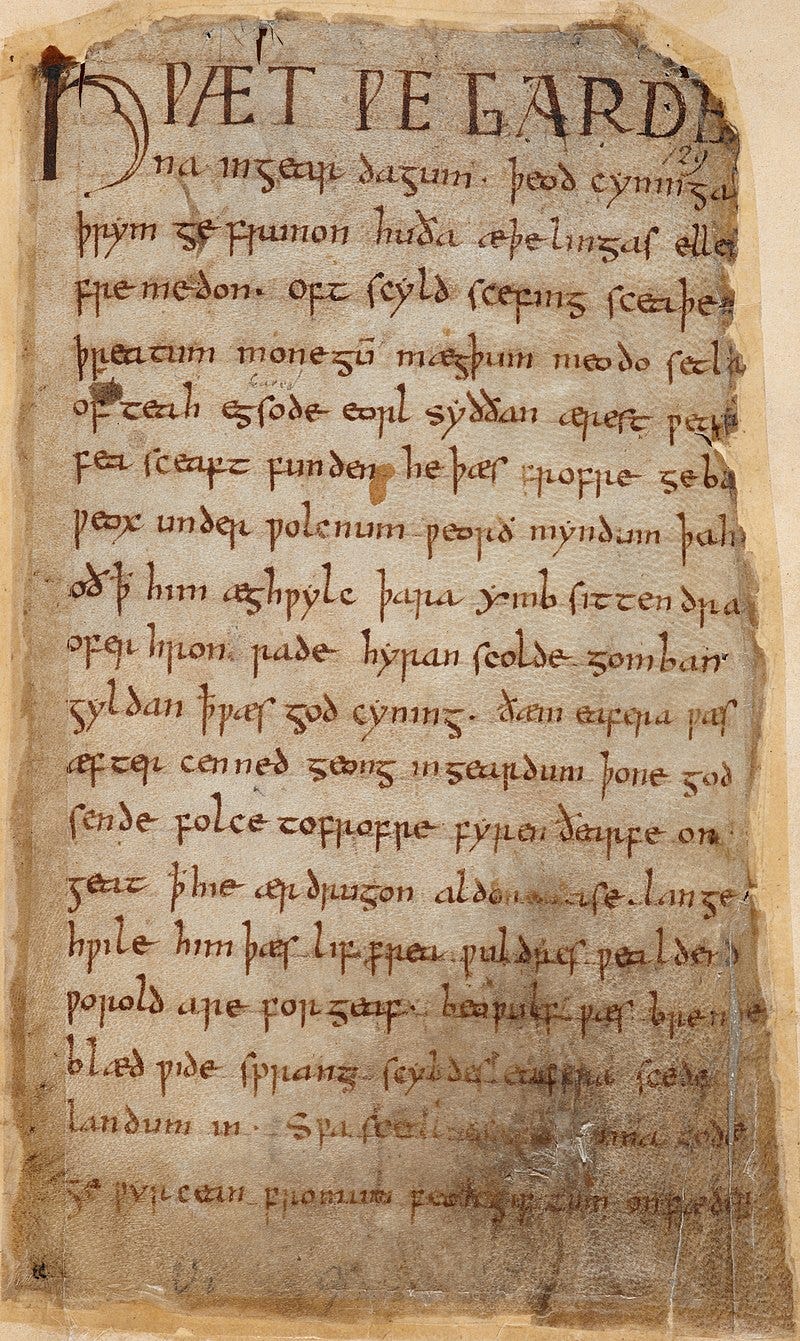
Here, Beowulf turns tragic. The wrath that once reflected God’s justice mirrors Lucifer’s ambition. Beowulf’s flaw is isolation. He confuses righteousness with indispensability. And that is how even saints become sinners.
His death is not punishment; it’s purification. By dying for his people, Beowulf reclaims the moral balance he nearly lost. The poem leaves us with this warning: divine anger must remain tethered to humility, or it becomes the very evil it sought to destroy.
That’s why Beowulf still matters. It shows that rage isn’t always wrong, but people must control it. Our age of outrage could use that reminder. Power needs restraint, and courage without moral clarity is just another form of chaos.
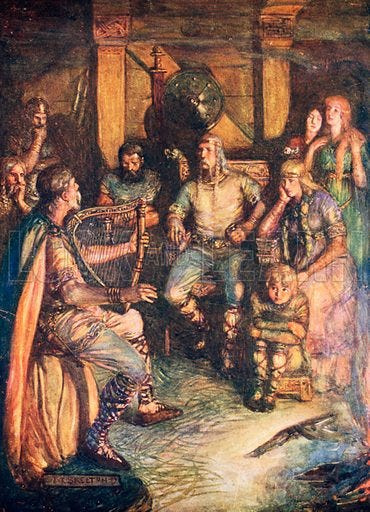
Lesson 2 — The Legacy That Endures
Beowulf is the quintessential epic of valor and legacy. It’s not only about what Beowulf conquers, but what he leaves behind, a model for living and dying with honor.
In this light, Beowulf becomes less about theology and more about humanity. The poem’s heartbeat is its understanding that every triumph fades, every hall burns, every name turns to smoke. What endures is how one faces the inevitable.
Beowulf’s strength is not merely physical. It’s moral and social. His loyalty to Hrothgar, his courage before monsters, and his gentleness toward his men create a pattern of leadership that still feels rare. He is both protector and servant, a ruler who acts before he speaks.
But Beowulf’s tragedy lies in his refusal to grow. He cannot imagine a world without his strength at its center. That is the curse of every hero, the inability to stop fighting. His death from fighting the dragon is both glorious and lonely. The poem mourns not just his body, but the vacuum his heroism leaves behind.
That tension gives Beowulf its enduring ache. We honor heroes but forget to build what replaces them. The Geats’ sorrow at his funeral feels familiar to any civilization that loses its moral compass when its strong men fall.
Beowulf’s obsession with legacy makes it timeless. The poem insists actions echo. Each deed ripples beyond its moment, shaping how future generations understand courage. To act rightly is to carve your name into the moral fabric of time.
That’s the real immortality Beowulf achieves, not through victory, but through example. His life teaches that glory fades, but goodness remains.
Even in defeat, he is noble. Even in death, instructive. He becomes what every leader should be: not flawless, but faithful to something larger than himself.
The poem’s last image, his barrow standing by the sea, is more than a monument. It’s a metaphor for moral vigilance. Civilizations, like that mound, endure only if they remember the cost of its safety.
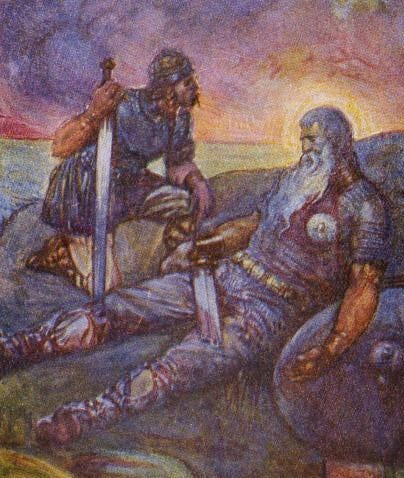
Beowulf reminds us that heroism isn’t an ancient virtue; it’s a daily one. One should live with honor, use strength rightly, and face chaos without becoming it.
In a time obsessed with power, recognition, and outrage, Beowulf’s story calls us back to something quieter: the discipline of goodness. His life may belong to the past, but his lessons are painfully current.
And when we read his story today, we recognize the ultimate truth the poet left us with — that monsters never really die. They change shape. They wear our faces and live in the choices we make. What saves us, now as then, is not victory, but virtue.
In the end, Beowulf doesn’t ask us to slay dragons. It asks us to recognize when we’ve become them and to choose, every day, to be the human worth defending.


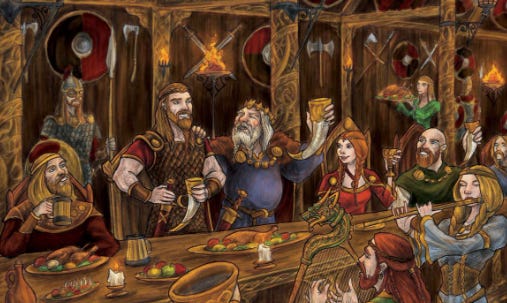
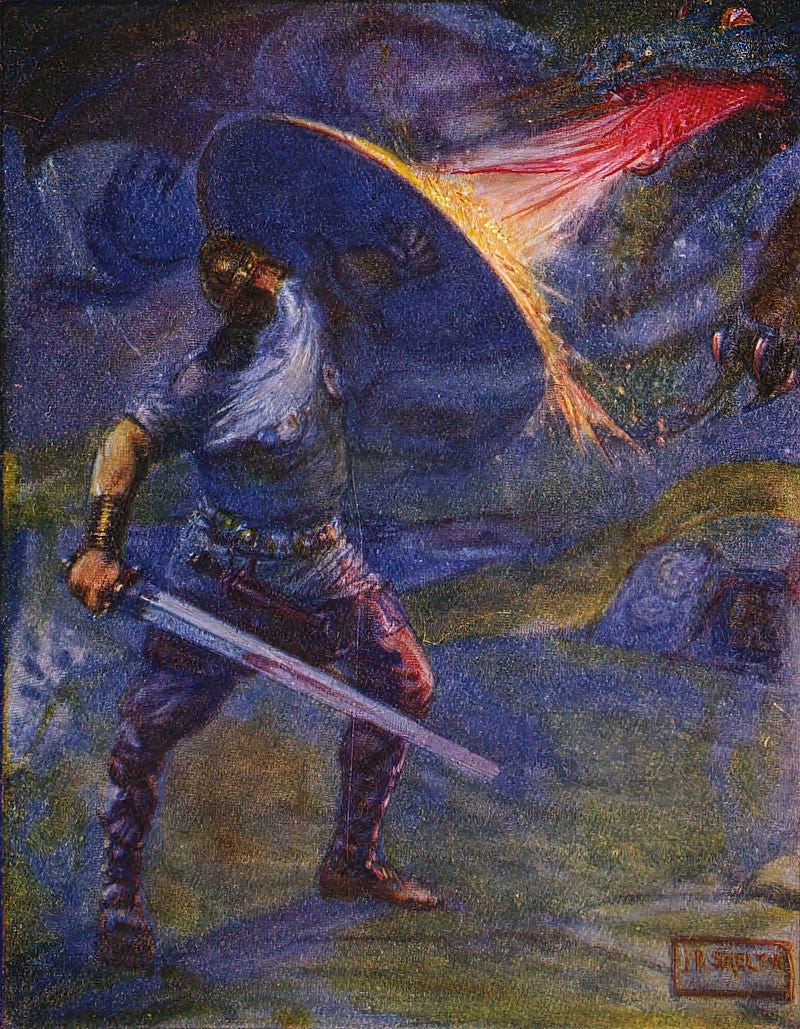
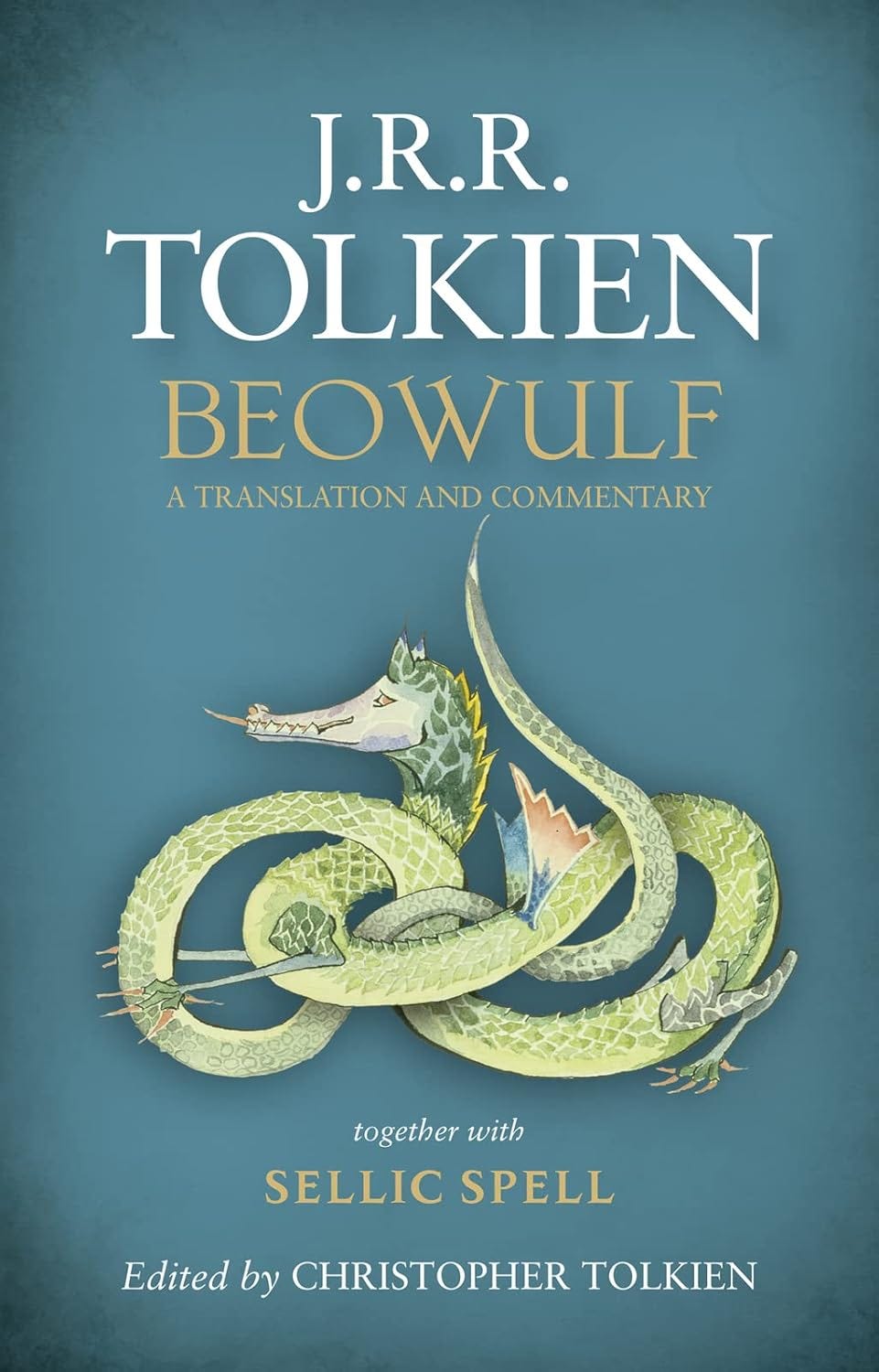
I'm afraid I must disagree with your conclusions about Beowulf's nature, particularly when you assert that "Beowulf’s tragedy lies in his refusal to grow. He cannot imagine a world without his strength at its center. That is the curse of every hero, the inability to stop fighting." Beowulf's decision to face the Dragon isn't hubris; the willingness to enter the fray is the mark of a man. By the time Beowulf faces the Dragon, he has ruled the Geats well for fifty years and created prosperity and stability for his people. Paradoxically, though, this prosperity has doomed his warriors to a kind of softness; they have forgotten how to fight, and so--with the exception of Wiglaf--they abandon their aged king in an attempt to preserve their own lives. The Beowulf poet recognizes that, as Tolkien puts it, although man is inevitably "overthrown by time," a hero nevertheless stays in the fight or as R.K. Gordon's translation insists: "Death is better for all earls than a shameful life."
“Our age of outrage could use that reminder.” Beautiful reminder. Like the concept of hubris, this story seems fitted for our time.